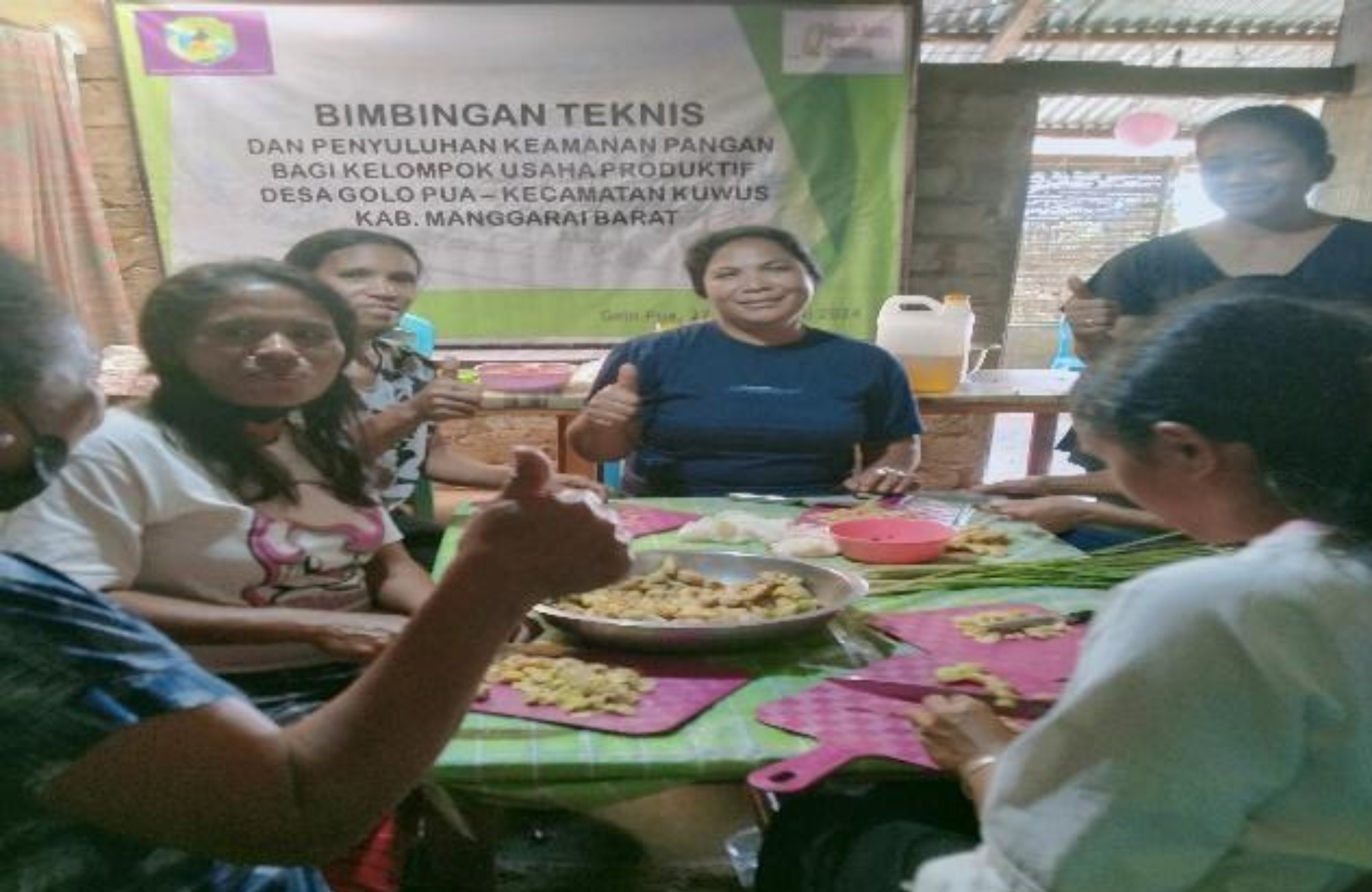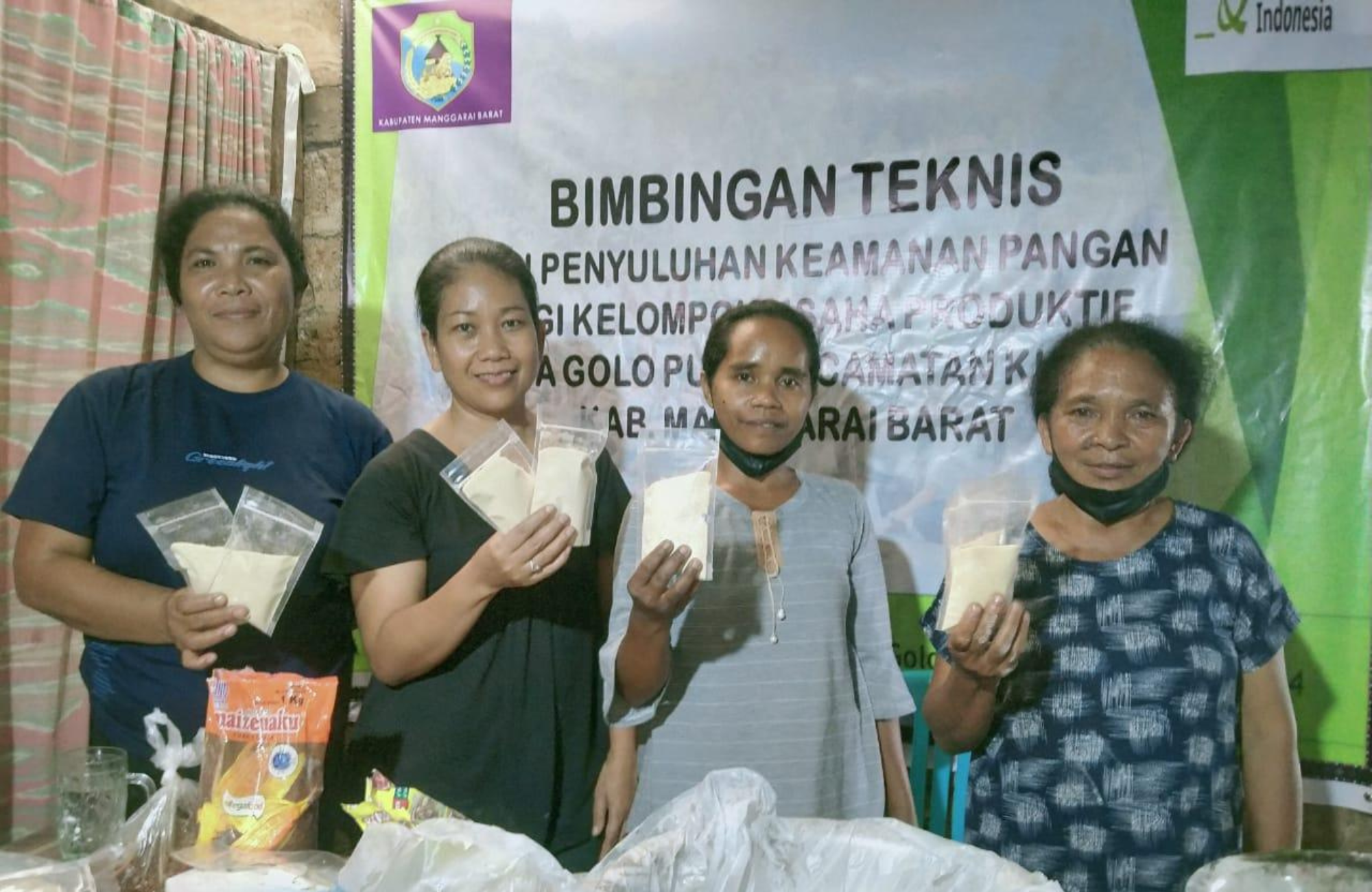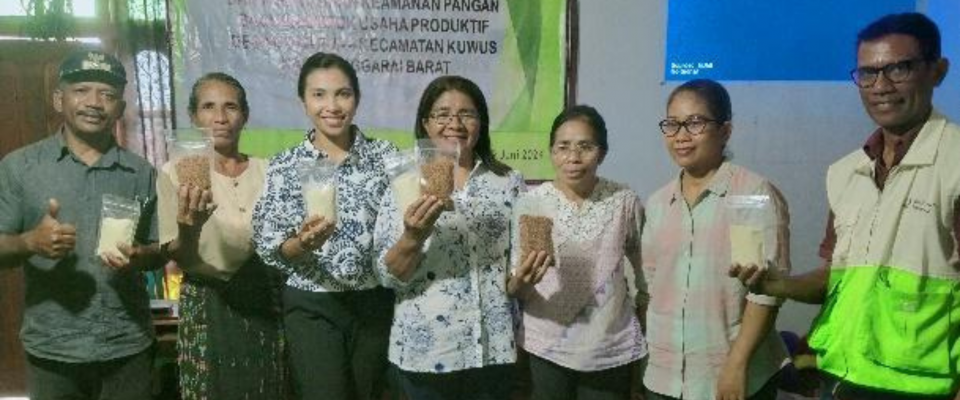Navigating these challenges requires a proactive and planned approach, including investment in training, technology, and internal capacity development. Support from the government, financial institutions, and non-profit organizations is also essential to help business groups overcome these barriers and reach their full potential.
From June 27-29, 2024, food safety training and counseling were conducted for 11 members of a rural business group in Golo Pua Village, including teenagers and the wider community, with a total of 25 participants. This training and counseling included a series of sessions on standards and best practices to ensure that every stage in the food production process, from raw material selection to final packaging, complies with health and safety regulations. The event was held over 3 effective days.
On the first day, a pre-test was conducted, followed by sessions on food legislation for small-scale food industries (PIRT), Food Safety and Quality, Good Manufacturing Practices (GMP), and Food Safety Labeling.
The second day's topics included Appropriate Food Processing Technology for PIRT, food packaging, GMP implementation, SSOP for PIRT, technical assistance for SPP IRT provision, introduction to practice materials, preparation for practice, and a post-test. The results from the pre-test and post-test indicated an improvement in participants' understanding throughout the training and counseling sessions.
On the third day, practical sessions included making Krispy Sambal and Aren Palm Sugar Extract. These two products are intended to become the flagship products of the group, branded as Dapur D’GP.
The training event was also attended by the Head of Golo Pua Village, the Chairperson of the PKK Team of Golo Pua Village, and the Secretary of Golo Pua Village. In his speech, the Head of Golo Pua Village expressed appreciation to the Gugah Nurani Indonesia for its continued significant attention to improving the quality of life in Golo Pua Village through various programs that are directly targeted and utilized by small communities in rural areas. Additionally, the Head of the Village praised the Cabe Krispy business group in Golo Pua Village for quickly seizing opportunities to develop their business from horticultural agriculture, particularly chili, by enhancing the quality and market value of the chilies. This situation is expected to motivate horticultural farmers to be more diligent in developing their existing chili ventures.

The facilitators for this training were Mrs. Dafrosa Mariana Welapau and Mrs. Partisia F. Jinus, who are Food Safety Extension Workers and Food Inspectors from the Manggarai Barat Health Office, as well as Mrs. Sabatia Parsilena, a culinary enthusiast.
The main aspects covered in the training included:
- Selection and Processing of Raw Materials: Ensuring that raw materials are free from contaminants and processed correctly to avoid spoilage.
- Sanitation and Hygiene: Teaching the importance of maintaining cleanliness in the production environment and the equipment used.
- Temperature Control: Explaining how proper temperature regulation during storage and processing can prevent the growth of harmful bacteria.
- Packaging and Storage: Instructing on safe packaging methods and proper storage techniques to extend the shelf life of products without compromising quality.
By applying good food safety techniques, village-based productive enterprises can enhance their product quality in several ways:
- Increasing Consumer Trust: Safe and high-quality products boost consumer trust. Consumers are more likely to be loyal and recommend the products to others when they are confident in their safety and quality.
- Minimizing Health Risks: By reducing the risk of contamination and foodborne illnesses, enterprises avoid significant financial and reputational losses.
- Meeting Regulatory Standards: Adhering to food safety standards allows enterprises to meet regulatory requirements, which may be necessary for accessing broader markets, including exports.
- Product Innovation: With a thorough understanding of food safety, enterprises can confidently develop new and innovative product variants without compromising consumer safety.

The group's business is an extension of the horticultural development program, particularly for organic chili, which has also been extensively developed by farmers in Golo Pua Village. This program has provided training and support to local farmers in growing chili and other organic vegetables using environmentally friendly and sustainable methods. The success of this horticultural program has laid a solid foundation for the development of processed products like Krispy Chili Sauce. Thus, through a strong commitment to strengthening productive village enterprises and leveraging the success of the organic chili horticultural program, Gugah Nurani Indonesia Manggarai Barat CDP continues to strive to create a sustainable positive impact, empower the community, and build a brighter future for the village's residents.
Edited by: FD Team
